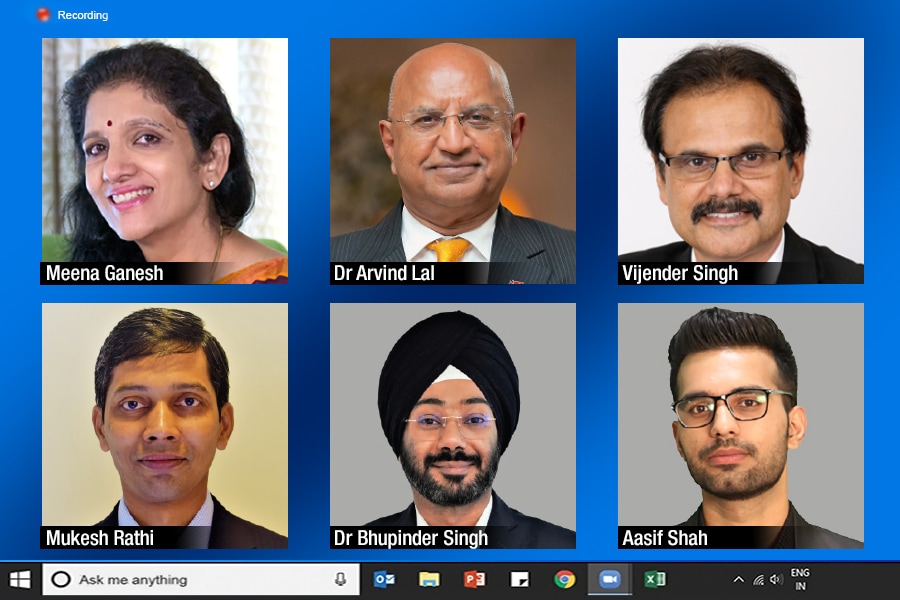Discovering how emerging technologies are transforming the future of healthcare
Digital innovations to drive a unified digital health system in India



With the second wave of Covid19 sweeping over India, the focus on the healthcare sector has been renewed. In the midst of the pandemic, it has had to innovate and change, and digital healthcare became a solution for reducing the imperfections in caregiving and personalising the experience. A clear learning that emerged from the first wave, however, was that healthcare and ancillary sectors must not be looked at in silos but as part of the larger ecosystem.
To explore how digital innovations could enable India to move towards a unified digital health system, Forbes India hosted a webinar on ‘Transforming Healthcare with Technology’, powered by Epillo Health Systems, an enterprise that aims to help people lead healthier and safer lifestyle, through products and services that connect, automate, disrupt and bring innovation to the digital health landscape.
The webinar covered various facets of the theme, enabling an understanding of how health-tech companies were truly unlocking the potential of digital transformation in healthcare. It also touched upon how healthcare was transforming, with the use of new technologies like blockchain, AI, ML, etc.,
Moderated by Manu Balachandran, Assistant Editor, Forbes India, the panel of healthcare industry luminaries, which included Meena Ganesh, CEO and MD, Portea Dr Arvind Lal, CMD, Lal PathLabs Vijender Singh, CEO, Metropolis Healthcare Limited Mukesh Rathi, CIO, Dr. Reddy"s Laboratories Dr Bhupinder Singh, Chair of Board, Epillo Health Systems and Aasif Shah, CEO, Epillo Health Systems, shared their views and insights on how a tech-enabled approach could aid in the early diagnosis and detection of diseases and improve healthcare management.
In the midst of the second wave, it could be said that the industry, in general, could have been better prepared to deal with this round of the pandemic. As Mukesh Rathi pointed out, “When the first lockdown was announced, our early investments in technologies allowed us to continue operations and make medicines. Lack of information and awareness about medicines is making this a multi-fold problem. It is about finding right used cases."
Offering a solution to take the excessive pressure off medical professionals, Meena Ganesh explained how AI and ML could enable lesser knowledgeable professionals to turn around diagnostics. “Last year we tied up with states to remotely monitor patients, using technology and healthcare workers. Digital healthcare can help rural India get help at the right time and the usage of a combination of digital and out-of-hospital care reduces the overall cost of healthcare," she said. However, she added that this time it was not possible to monitor those who are at home.
Over the past one year, there has been a massive adoption of tele-consultations, supported by a huge change in behaviour, even in the elderly, who are not comfortable with video calls. This is just one instance of how digital technologies can be integrated to create an ecosystem that could lead to better treatment and care for patients.
Agreeing that India doesn"t have enough doctors, so the country has no option but to rely on tele-medicine as internet penetration increases, Dr Arvind Lal observed, “Last mile connectivity for effective and timely healthcare for rural India is a challenge and is India"s ground reality. That need to be fixed first." He also emphasised that it is important to not lose sight of ‘Test, Track, Isolate, and Vaccinate’ and a more cogent coordination between states and the centre is the need of the hour.
Bringing in a perspective on the vaccination, Vijender Singh suggested, “India faces a mammoth challenge. Campaigns like the polio vaccination drive need to be executed for Covid19 vaccination as well, to speed up the ongoing vaccination drive." He added that diagnostics have always been at the forefront of implementing new technologies. “Electronic record management is going to be the first step towards a digital healthcare system. It will improve the efficacy and efficiency of treatment," he averred.
Dr Bhupinder Singh agreed that clubbing primary health with digital technology can change the future of the Indian healthcare industry. However, he cautioned, “Data security and connectivity are big issues in digitising healthcare. Enabling a secure healthcare information exchange between stakeholders is important and using the digital signature of Aadhaar or Blockchain will allow stakeholders to exchange information without worrying about security and privacy of their data." He also added that using digital technologies, like blockchain and AI, could help understand the patient profile, so that their treatment has more efficacy.
Giving the entire discussion a broader perspective, Aasif Shah concluded, “Healthcare is not just about medication and treatment, it is also about lifestyle management. It requires a balance between treatment and health management through lifestyle change."
The pages slugged ‘Brand Connect’ are equivalent to advertisements and are not written and produced by Forbes India journalists.
First Published: May 12, 2021, 13:14
Subscribe Now